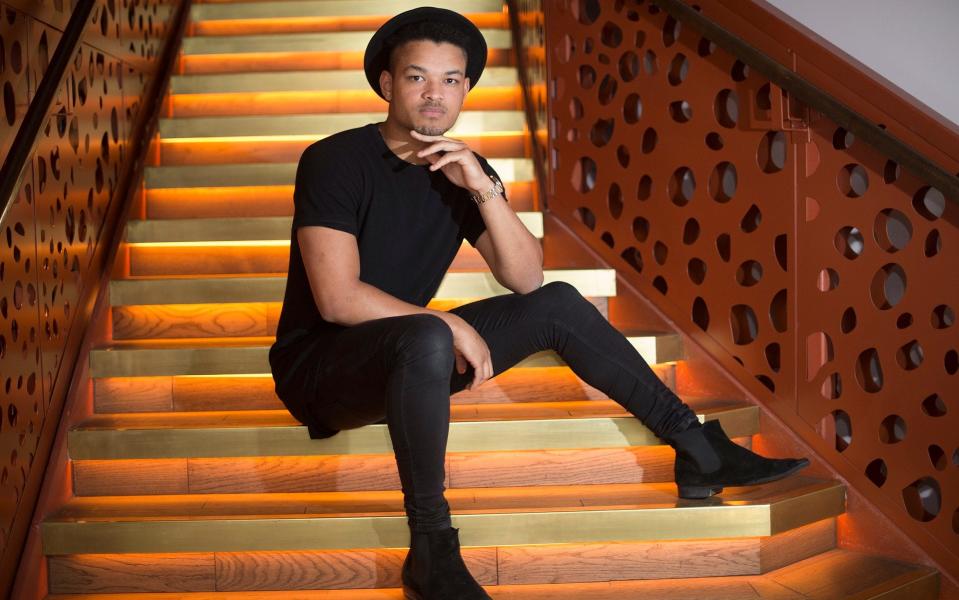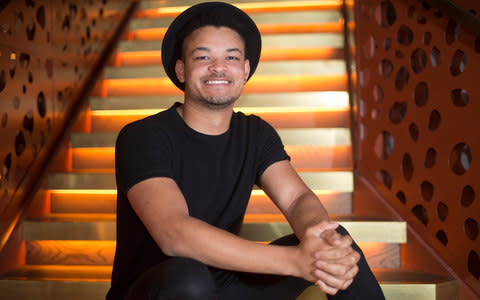Meet Steve Bartlett, the Instagram king who wants to be the Condé Nast of social media

No, says Steve Bartlett, he does not have a business card. “I have Twitter,” he instead suggests, with more than a hint of incredulity. It is a response that perhaps may have been obvious, for it fits a theme that underpins Bartlett’s life and business: out with the old, in with the new.
A frighteningly self-assured 24-year-old, Bartlett is the founder and chief executive of Social Chain, a start-up marketing agency that prides itself on embracing everything fresh in the world of social media. Bartlett and his colleagues have been variously described as “the kids who decide what all the other kids talk about” and the “social media illuminati”.
If such nicknames conjure images of an organisation quietly pulling strings behind the scenes, then you are not completely wrong. Formed in late 2014, Social Chain has primarily made its name (and its money) through the ownership of hugely popular social media profiles that boast millions of young followers.
This is Social Chain, we do things differently here.
— Steven Bartlett (@SteveBartlettSC) August 9, 2017
The company has acquired accounts such as “Fitness Motivation”, which has almost 2m Twitter followers, and the Instagram page “Love Food”, which has around 7m. These are just two of more than 400 “digital communities” owned by Social Chain. For brands such as McDonald’s, Puma and Fox, to name a few of the company’s clients, such power is clearly alluring.
“The process for me when I go in to speak with a big brand, whoever they might be, is to say we are uniquely positioned to know a lot about the people they are trying to target,” Bartlett says.
We believe Social Chain and Media Chain can be a billion-pound company
At the start, before Social Chain had become a company, Bartlett and co-founder Dominic McGregor set about rounding up as many of the people behind popular accounts as possible.
“It was a time when people did not really appreciate social media,” says Bartlett, who was then working as a consultant, having dropped out of Manchester Metropolitan University after one lecture. “They saw these big social channels that might have 7m followers, and they saw it as a silly Instagram account. We saw it as the future of digital publishing.”
Big brands became increasingly interested. The use of Social Chain accounts to promote Spotify’s student subscription offer, for example, proved particularly successful.
A post shared by Love Food (@love_food) on Aug 9, 2017 at 5:41am PDT
The company has been backed by investment from German talent management firm NVC, whose founder is Georg Kofler, the former boss of German TV broadcasters ProSieben and Premiere. That backing, and the rapid growth of Social Chain, has prompted the creation of Media Chain, a bigger beast. “Media Chain endeavours to be the modern-day media house for the future,” says Bartlett. “You have companies like Condé Nast that own print, Viacom that owns TV and Global Radio that owns the big radio stations. We endeavour to own the big social media properties in the same way.”
The company recently snapped up gaming network Devise as part of its acquisition efforts. “In terms of operational costs, Media Chain is a profitable business,” Bartlett says. “But we are investing so heavily that when you consider those investments we are making, we are in a growth period.”

That growth has not been entirely smooth, though, and there was a notable blemish on the company’s reputation a year ago, when it received a rap on the knuckles from the competitions watchdog for promoting brands on its accounts “without readers being informed” that it was paid-for advertising.
Bartlett insists they now have a good relationship with the authorities. “When we started out, the rules were less clear than they are now,” he says. “The ASA had not rewritten the rules for platforms like Twitter. It has caught up now.”
Bartlett is the public face of the business, and he is fast becoming a sizeable brand of his own. Fittingly, he has swathes of online followers, including nearly 300,000 on Facebook and 85,000 on Instagram. “I really believe in the opportunity to build a personal brand,” Bartlett says. “In doing so you have a platform that allows you to build a greater voice.”
A post shared by Steven Bartlett (@stevebartlettsc) on Jul 7, 2017 at 2:01pm PDT
Part of the appeal is spreading the Social Chain story, and part of it is “inspiring other young people”. For teenagers, Bartlett has plenty of examples of his own entrepreneurial adventures. One of them is a business he started in his hometown of Plymouth at the age of 16. With a dearth of social nights for under-18s, he started to throw events.
“I threw one on my 17th birthday and 3,000 people turned up, all paying to get in,” he laughs. “The police were called and the council even tried to stop it. I had a very profitable birthday.”
That was a good start, and Bartlett hopes the same can be said for Social Chain. “We believe Social Chain and Media Chain can be a billion-pound company,” he says. But he adds: “We don’t have a five-year game plan. We don’t even have a three-year game plan. We understand our approach, but we also completely understand that Facebook could disappear tomorrow. We just need to be set up in a way that will win if it does.”

 Yahoo Finance
Yahoo Finance 